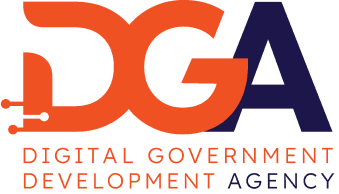The Centralized Information System for Government Services (info.go.th)
Currently, citizens and entrepreneurs need to contact government agencies to request licenses, certificates, or various services related to daily life, receiving assistance, or running a business. The process of requesting licenses, certificates, or services from government agencies originates from different laws, agencies, and some laws may not specify the details, forms, or required documents for submission. Moreover, the procedures for staff consideration may not be clearly defined. This creates unnecessary burdens and obstacles for citizens when contacting government agencies to carry out various tasks. As a result, it impacts the ability to implement business operations and causes Thailand to miss opportunities in trade and competition with other countries.
The Licensing Facilitation Act B.E. 2558 (2015) aims to facilitate citizens’ access to government services by making interactions with government agencies “faster, easier, and cheaper.” It focuses on making government operations more transparent, accountable, efficient, and effective, benefiting citizens and enhancing the country’s competitiveness. The law mandates the creation of user-friendly guides that clearly define the steps and timelines for permission processes. In addition, the one-stop service center was established to manage applications and provide clear information regarding permits, offering integrated and effective services to the public.
The Digital Government Development Agency (Public Organization) (DGA) and the Office of the Public Sector Development Commission (OPDC) have jointly developed the information center for contacting government officials (info.go.th) to enhance citizens’ engagement and communication with government agencies and to provide a platform for public agencies to create and disseminate citizen manuals electronically, as stipulated by the Facilitation Act. The system has been in operation since July 21, 2015, and continues to be updated, such as following the resolution of the Digital Government Development Steering Committee, under the order of the Prime Minister’s office, dated March 9, 2018. This includes improving citizen manuals to eliminate the need for citizens to provide document copies, such as copies of national ID cards or household registrations and requiring government agencies with public service points nationwide to map and store their locations digitally.
Benefits for Different Stakeholders:
Citizens:
It will be more convenient for citizens when interacting with the government, as services become “faster, easier, and cheaper.” Especially, citizens can access accurate, complete, and clear information on government services through citizen manuals. They will be able to identify the channels for different services, prepare the required documents, and pay necessary fees in full (which avoids having to contact government offices multiple times). They will also know the steps and timeline for services, and in case of any doubts or issues, they can inquire or file complaints at the appropriate places.
Government Agencies:
Government agencies will benefit from clearer service details and steps, ensuring that the administration is transparent, efficient, and effective. Services will be provided with clear guidelines, leading to more streamlined operations and enhanced accountability.
Central Agencies:
The Public Sector Development Commission (OPDC) will be able to monitor the procedures and timelines outlined in the citizen manuals to ensure that they adhere to good governance standards. If the prescribed steps or timelines seem unreasonably delayed, the OPDC can propose changes to the Cabinet for review and action, ensuring that any inefficiencies are swiftly addressed.
Technical Characteristics
The Centralized Information System for Government Services (info.go.th) is designed as a centralized database system that allows government agencies to input and update various types of information. The key capabilities of this system include:
- System Capabilities for Public Use
-
- The system can access various types of information for government contact, including:
-
-
- Government Agency Information includes agency name, affiliation, address, contact phone number, citizen service manuals, available services, and service locations.
- Public Service Points Information covers service point names, addresses, contact phone numbers, service manuals, available services, and location coordinates. These coordinates can be linked to navigation applications to guide citizens to service points.
- Citizen Service Manuals and Public Services Information: In compliance with the Government Facilitation Act B.E. 2558 (2015), this includes forms, required documents, fees, processing times, and links to online services (if available).
- Government Service Guide Articles: Written in easy-to-understand language, these articles provide insights into government services and include direct links to relevant citizen service manuals or government services.
-
-
- The system can search for various types of information to contact government agencies.
- Citizen service manuals and public service information based on target groups or types of interest can be accessed through this system.
- Citizens can rate their satisfaction scores with government services.
- Data can be utilized to recommend services that match citizens’ needs, such as Frequently Used Services and Related Services (Recommendations).
- System Capabilities for Government Officials
- Able to update government agency information to ensure it is current.
- Able to add, update, or delete information about public service points.
- Able to add, update, or cancel citizen service manuals/public services for their agency.
- Able to assign tags to citizen service manuals/public services, allowing citizens to access the relevant manual or service using common language (e.g., “ID card,” “Driver’s license”) instead of formal terms (e.g., “National ID card,” “Public vehicle driver’s license”).
- Able to “pin” public service points, meaning linking citizen service manuals/public services to specific service points.
- Able to view satisfaction assessments or suggestions from citizens regarding government contact for their agency or public service points they are responsible for.
- Able to record transaction data (Transaction Reports) in the format and guidelines specified by the Office of the Civil Service Commission (OCSC).
- Able to record delays according to the Licensing Facilitation Act B.E. 2558 (2015).
- Able to assign permissions for officials to manage information within their area of responsibility, such as allowing officials to update certain public service points or citizen service manuals/ public services.
- The system’s capabilities to support usage for central agency staff.
-
- Able to view statistical data and check information about agencies, service points, and citizen service manuals.
- Able to view statistical data and check information on citizen satisfaction assessment results.
- Able to view statistical data and check transaction volume data, categorized by agency and service.
- Able to view statistical data and check information on delays according to the regulations set by the Licensing Facilitation Act B.E. 2558.
- Able to define staff access rights at the agency level.
Related Laws:
Agency
- The Licensing Facilitation Act B.E. 2558, Section 7
- Digital Government Development Agency (Public Organization)
System Security and Protection
The digital identity verification system is hosted on a cloud system provided and managed by the Digital Government Development Agency (Public Organization) (DGA). This government cloud system has a service level agreement (SLA) with an uptime of no less than 99.5%. It is a highly secure system with stringent data theft prevention measures and is certified with ISO/IEC 27001: 2013 for Information Security Management Systems (ISMS).
The applications and related systems operate under the Computer Crime Act (No. 2), B.E. 2560 and the Cybersecurity Act, B.E. 2562 (2019).
In addition, the system has been developed with consideration for various security aspects as follows:
- The development of applications, systems, and platforms of the Digital Government Development Agency (DGA) is implemented under the ISO/IEC 9001 standard.
- Before launching the application, system, and platform for actual service, they must operate testing in terms of both functional attributes (Functional Test) and other aspects (Non-Functional Test), such as Performance Test and Security Test. The test results must demonstrate that the system operates properly, is highly available, and has low security risks.
DGA conducts security testing of applications and platforms (Security Test) using at least two methods as follows:
- Static Application Security Testing (SAST) This method involves reviewing the source code of the developed applications and platforms to identify potential programming vulnerabilities that could be exploited by attackers or malicious parties.
- Vulnerability Assessment (VA) This method involves assessing the installed applications and platforms as a whole to determine if they have any security risks arising from improper settings or insufficiently secure infrastructure.
Contact for Service Requests
- General citizens interested in using the service can access it immediately at the website https://info.go.th.
- Government agencies interested in using the service can contact the DGA Contact Center at Tel: 02-612-6060 or by email at [email protected].
More details
- Service presentation document

